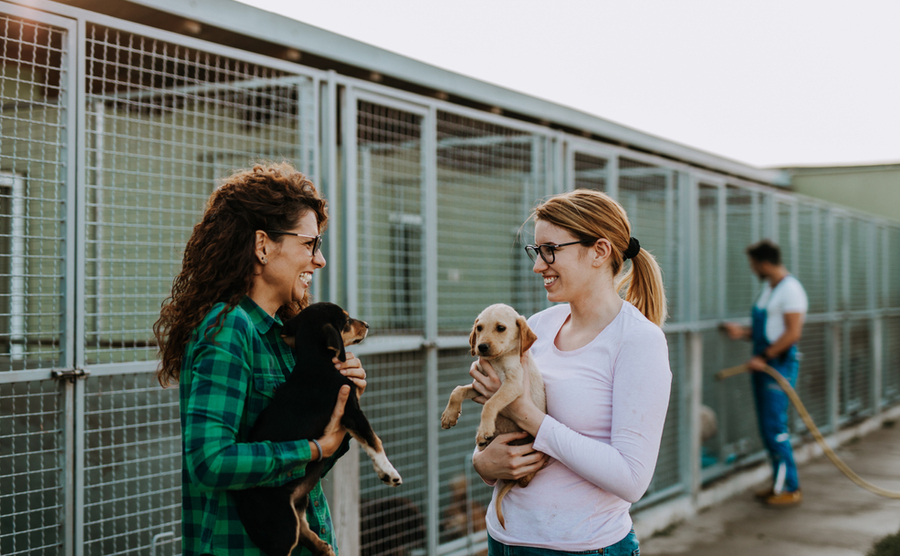When you’re moving to France with animals, be it dogs, cats, hamsters or rabbits, you want peace of mind that they’ll get there safely and be happy. So you’ll be glad to know that pets in France are commonly accepted in public places. Some bars, restaurants and shops permit pets too, although dogs are more commonly welcomed than other animals.

The mayor of Emberménil, a village in the Meurthe-et-Moselle department of north-eastern France, was in the news recently as he issued a decree limiting the number of pets allowed per household. The move was introduced in direct response to increasing complaints over noise pollution from animals.
“Residents may no longer have more than one cockerel, one goose, one guinea fowl and two dogs per household”. Effective immediately, people flouting this rule now face a fine of up to 68 euros. Or even worse, criminal charges. Unsurprisingly, this has not gone down well with all inhabitants. There has yet to be any news on how the mayor plans to police the ruling.
Find homes in France via our property portal.
Attitudes towards pets in France
The perception of pets in France can be easily misjudged. Some people believe pets should serve a function – especially those in rural areas. Chickens can provide invaluable cost savings, laying to earn their keep. Dogs tend to be used for home protection. Granted, dogs may not always be kept indoors or sleep in beds with their owners, like some of ours do. But to assume that all people who own hunt dogs don’t care about their welfare, would be a grave error of judgement. Although it is true that pets in France are seemingly more left to their own devices to roam at liberty more than perhaps elsewhere.
Pets in France, particularly in rural areas, are without doubt the root cause of many a neighbourhood dispute. Barking dogs, crowing cockerels and animals left to roam freely are the origination of many a battle. Some Mayors take complaints of this nature more seriously than others. However, it may be down to the lottery of your postcode whether your complaint has any legs so to speak. Therefore it is always prudent to take time to think through ramifications of embarking on these disputes with people that ultimately you may still have to live among.

A rooster named Maurice caused quite the uproar in 2019
Recent developments
Recent years have seen some interesting news about pets in France. Notably, the infamous court case against Maurice the cockerel in 2019. On that occasion, holiday home owners in the pretty French island of Oléron had taken said bird’s owner to court citing noise pollution. The owners defense being that he was simply “born to do it”. Ultimately, the cockerel was victorious of course! Due to its frivolity, Maurice gained international support and went on to become a symbol for the protection of countryside animals until his demise, aged 6.
Since then, the mayor of Beziers became so disgusted at the levels of dog fouling in town, he took drastic action by introducing a DNA-tracking program to name canine perpetrators. The program will run until 2025, and requires dog owners to take dog to the vet for free for a saliva test. After undergoing genetic testing, a genetic passport is issued that owners must carry on their person at all times. Failure to produce these documents result in on the spot fines and the genetic passports are in turn used to match the waste to the perpetrator!

Would you rescue an animal from a shelter?
Ever-growing animal abandonment
As in many other countries, rescue centres in France saw large number of uptake in pets during the COVID pandemic. Those numbers again increased amid the current cost of living crisis and some shelters in France are at capacity. There is an ever-growing concern over pets in France being let loose and abandoned. Whether that’s a result of financial hardship or simply being seen as inconvenient to best-laid plans, notably holidays.
According to the French transport minister, 100,000 pets in France are now abandoned each year. With those numbers peaking over the summer months. The Society for Protection of Animals reports that over 12,000 animals were abandoned this summer alone. This clearly is an untenable situation and urgently needs to be addressed. In addition to being heartbreaking for the animals concerned, this also causes risk of injury and accident to people coming across roaming pets. So if you love animals and have time on your hands, rescues would very much welcome hearing from you.










